This spring, Chen Xiangbai, a provincial inheritor of the state-level intangible cultural heritage item"Chaozhou gongfu tea ceremony", had a meeting with Dong Chonghua, an inheritor of the intangible cultural heritage item "Ye Wen'sWing Chun" in Naihai district, Foshan city. As gongfu meets kung fu (the two items are pronounced the same way in Mandarin Chinese), the two cultural heritage inheritors discussed their craft and engaged in tea-tasting and martial arts practice, creating a unique experience.
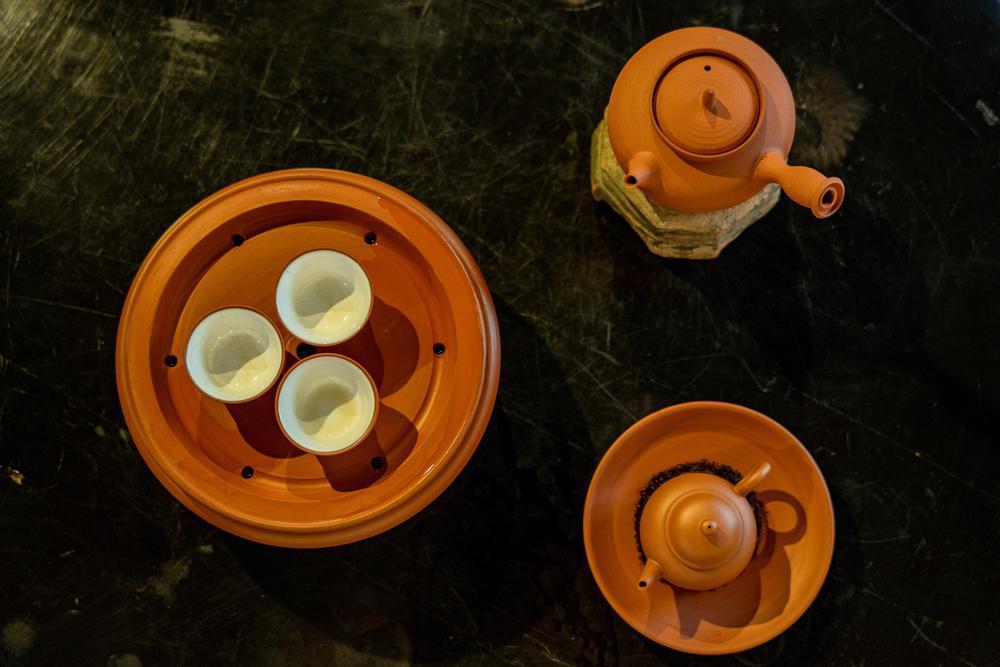
To Chen Xiangbai, Chinese people "incorporate art into life" and use it in their daily lives without noticing it. For instance, the "one pot, three cups" tradition of gongfu tea is well-known in Chaozhou, but it is challenging for people here to explain why.
The "one pot, three cups" custom refers to the practice of serving only one teapot and three cups for any number of people present. This means that everyone takes turns drinking from the same pot and sharing the same cups. According to Chen Xiangbai, the essence of gongfu tea ceremony lies in its core philosophy of "harmony", and the "gongfu" in gongfu tea does not focus on tea ware, tea-brewing procedure, tea leaves, and the tea-drinking environment, but on harmony referring to the philosophy of tea-tasting.
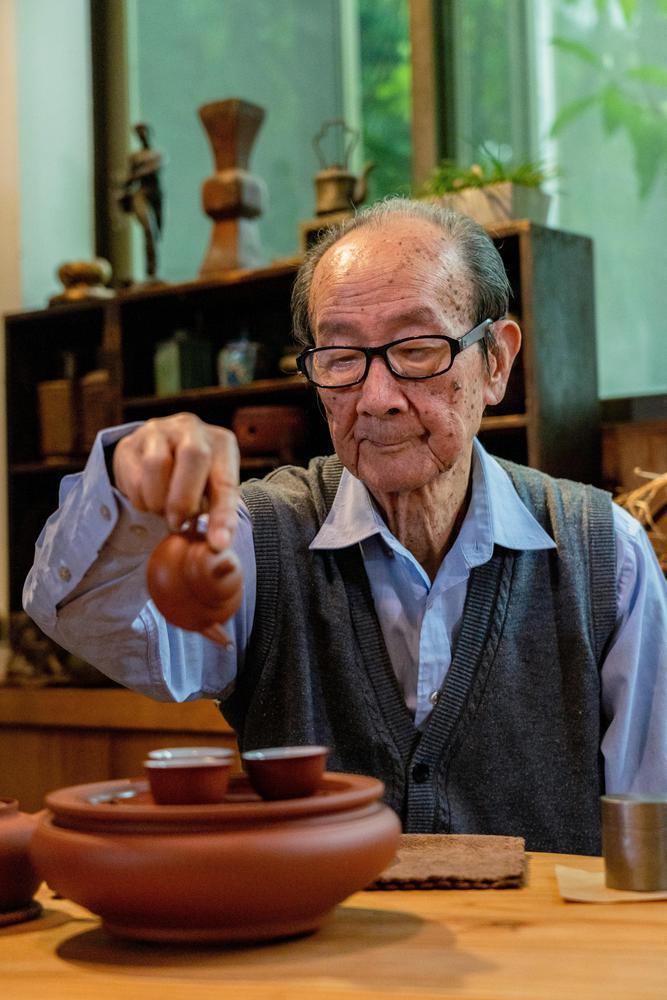
Dong Chonghua resonated with this concept. "The only goal of traditional martial arts is to stop fighting," Dong Chonghua said. He repeatedly emphasizes to his students that martial artists should focus on their martial virtue. Practicing Wing Chun is not about hurting others, but inheriting Chinese martial arts apart from strengthening bodies and defending. To sum up, the essence of martial art is about stopping war for harmony.
Wing Chun's basic skill is called "little idea", which includes only a few movements but embodies the most fundamental techniques of Wing Chun's offense and defense. Dong Chonghua emphasized that for martial artists of Wing Chun, "When one has the correct idea, one can make progress in the right way; otherwise, the later practice would be wrong," this highlights the importance of mastering the basics of the little idea.
Dong Chonghua's basic skills for Wing Chun came from his love for it. He started learning it in 1995 and later studied under Yip Chun, the eldest son of Yip Man. From being a student to a disseminator to an inheritor, he gradually realized his childhood dream of kung fu.
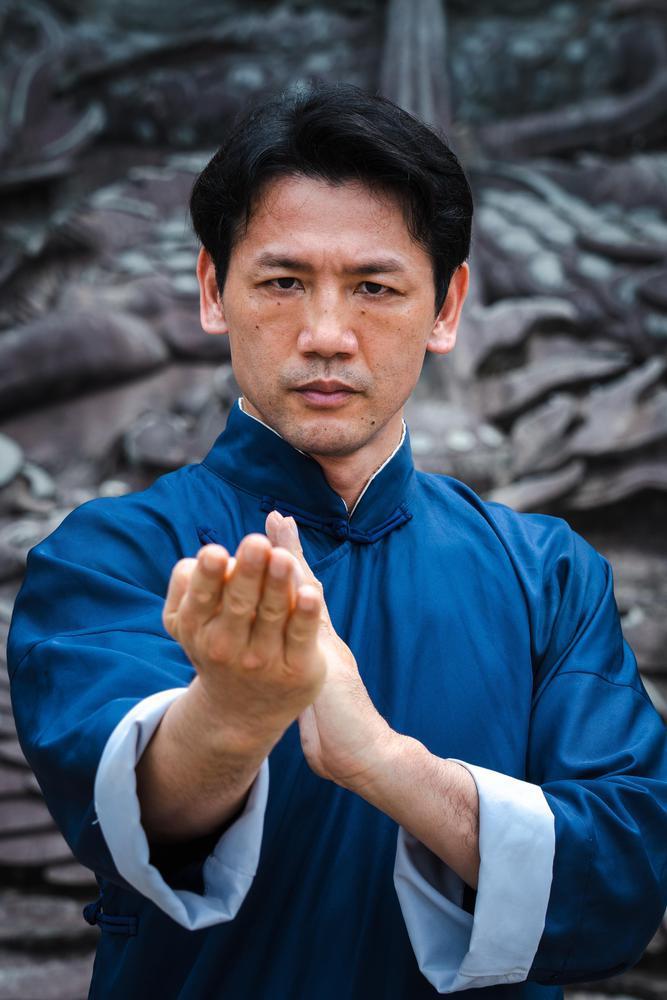
For Chaozhou people, the gongfu tea ceremony is a skill acquired in their childhood. It requires elaborate efforts to make the tea, so it is often mistaken for "kung fu tea"(功夫). However, in Chaozhou dialect, "kung fu" and "gongfu" not only sound different but also have vastly different meanings. According to an official Chinese dictionary Cihai, "kung fu"(功夫) refers to techniques, while "gongfu"(工夫) refers to the time and energy spent.
Chen Xiangbai has been learning gongfu tea ceremony since he was ten years old, and has been fully devoted to researching it and Chinese tea culture since his retirement, for more than 30 years. In 2011, he was awarded the title of "Ambassador for Culture of Peace" by UNESCO.
"My most ambitious dream is to promote Chaozhou gongfu tea culture to the world!" Chen Xiangbai has been invited to lecture in Japan and countries in Southeast Asia and Europe. "Promoting it is also making contributions to world peace. Do not underestimate the power of a cup of gongfu tea."
"My dream is to spread Wing Chun and Chinese kung fu to the world!" Dong Chonghua said. "The World Wing Chun Competition provides a platform for Wing Chun masters from all over the world to exchange experience. We also lecture it in villages, enterprises, and schools, so as to reduce barriers to promoting the traditional culture of martial arts."
工夫茶PK咏春拳,你猜发生了什么?
这个春天,国家级非遗项目潮州工夫茶艺省级传承人陈香白,与佛山市南海区咏春拳叶问宗支非遗传承人董崇华进行了一次会面。当工夫遇上功夫,两位非遗传承人谈天论地,品茶比武,碰撞出全新火花。
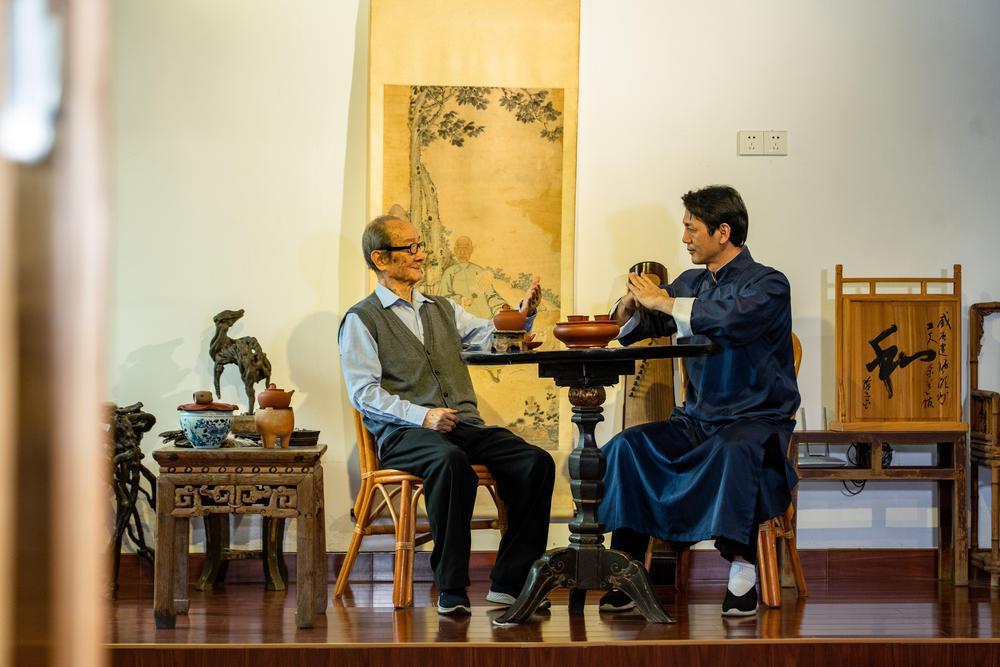
在陈香白眼中,中国人是把“艺术生活化”,百姓日用而不知。以潮州工夫茶为例,街头巷尾都知道“一壶三杯”,但若要细问为何,大家也很难道明。
所谓一壶三杯,即在场无论多少人,都只摆一壶茶、三个杯,大家轮流喝。陈香白说,工夫茶的“工夫”不在乎茶具、程式、茶叶品质与喝茶环境,品茶的灵魂在于工夫茶的核心理念——“和”。
这个“和”字,让董崇华深以为然。“传统武术只有一个宗旨:止戈为武。”董崇华说,他给学生讲课时总是反复强调:习武之人最重武德。练咏春,不是说要去伤害别人,除了强身健体、防身护卫之外,更重要的是要做到对中华武术的传承。止戈为武,其本贵和。
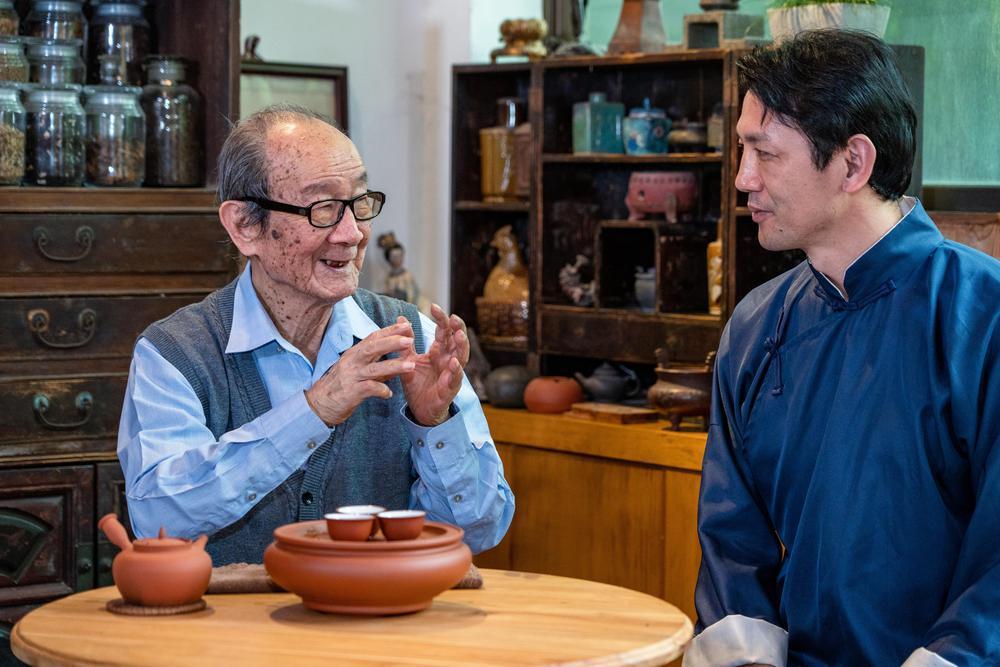
咏春有一个初级套路叫“小念头”,动作招式不多,但集中了咏春攻防最基本的招式和手法。董崇华表示,咏春有一个说法叫“念头正终身正,念头不正终身不正”,强调的就是打好小念头基础的重要性。
董崇华的“童子功”源于热爱。1995年开始学习,后来师从叶问长子叶准,从学习者到传播者到传承人,一步一步地实现了童年的功夫梦。
对潮州人来说,工夫茶也是他们的“童子功”。因为要下很多功夫,工夫茶也常被误为“功夫茶”。但“工夫”和“功夫”在潮州话中不但发音不同,意思也差之千里。按《辞海》解释,“功夫”指技巧,“工夫”多指花费的时间与精力。
陈香白自10岁起跟着大人学习工夫茶,直到退休后全身心投入研究潮州工夫茶和中国茶文化,迄今已30多年。2011年,他被联合国教科文组织授予“世界和平文化使者”荣誉称号。
“我有一个宏愿,那就是把潮州工夫茶文化推向全世界!”陈香白曾受邀到日本、东南亚及欧洲各国讲学,“推广和弘扬潮州工夫茶文化,也是为世界和平添砖加瓦,不要小看了这杯工夫茶。”
“我也有一个愿望,希望将咏春和中国功夫传播到世界各地!”董崇华表示,“世界咏春大赛为各地咏春高手搭建了交流学习、切磋技艺的平台,与此同时,我们也经常走进村居、企业、学校教学,也可以为传统武术文化推广疏通渠道。”
文丨羊城晚报全媒体记者 许悦 通讯员 黄旭君
图丨程麒
翻译丨刘佳慧









